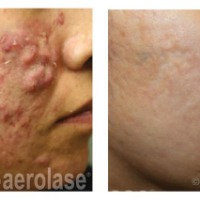Every few years there's a new diet "monster." In the last few years we've moved on from carbohydrates to the newest threat: high fructose corn syrup (HFCS). Most of us don't even know what it is, we just know we're not supposed to eat it because it makes us fat. This time we might be on to something. Studies have shown that high fructose corn syrup does contribute to obesity.

The term "high fructose corn syrup" is used to describe corn that has been processed to convert its glucose into fructose which makes it sweeter. (Glucose is what your body uses for fuels so we should really be converting to it not from it.) Any time you alter the chemical makeup of food you alter its effects on the body. This is why you are urged to avoid processed foods and foods with additives, because nature knows best.
High fructose corn syrup is most commonly found in baked goods and sodas but is present in more foods than you would imagine. As with sugar, a little bit here and there isn't a bad thing, but we're eating more and more of it. In 2004, the American Journal of Clinical Nutrition reported that consumption of HFCS in America increased 1000% between 1970 and 1990. In 2008, it comprised 40% of the sweeteners used in beverages and it is the only sweetener used in soft drinks. DiebetesHealth.com warns that diabetics must be especially careful of this ingredient. Glucose levels are regulated by insulin, which also signals another hormone Leptin. Leptin tells you when you're full. Fructose does not stimulate glucose levels so insulin does not signal Leptin which can lead to weight gain.
On February 26, 2010, the researchers from the Department of Psychology and the Princeton Neuroscience Institute published results of two studies done on rats in the journal "Pharmacology, Biochemistry and Behavior." Rats provided with HFCS at levels lower than those normally found in soda showed excessive weight gain across the board. Table sugar didn't have the same effects and was not nearly as consistent. Not even extremely high fat diets showed similar results. Even more alarmingly, the consumption of HFCS seemed to promote abdominal fat gain and greater triglyceride levels in the blood. The rats that were given access to HFCS gained 48% more weight than those on a regular diet.
As with all things, moderation is key. One soda every so often is okay, as is the occasional processed cupcake. A regular diet of processed foods sweetened with HFCS is not only going to show problems in your waistline, but in your health as well.






